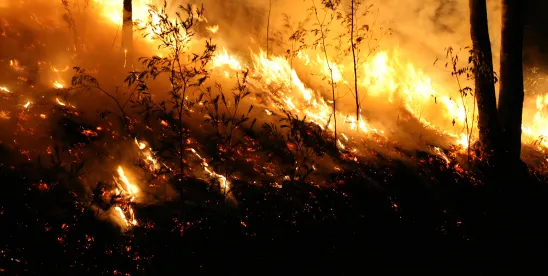Los Angeles continues to be devastated by wildfires, and our thoughts are with those who have been affected. Tragically, lives have been lost. Homeowners and businesses ordered to evacuate have left behind properties that suffered enormous property damage and loss. At this time, more than 15,000 structures have been burned and counting. Landmarks, places of worship, schools and notable business are among the structures that have been damaged or destroyed. Recent estimates have pegged insured losses in the $20 billion to $30 billion range with some estimates coming in even higher.
Safety is the number one priority. At some point, though, the focus will shift as the fires seize and those affected rebuild and replace their property. There has already been much talk of insurance availability and maximizing insurance recoveries will be a key component of the recovery process. For those who will go through the insurance claims process, we have prepared critical action items to help policyholders navigate the claim process.
Navigating the Insurance Claims Process: Action Items
- Obtain a Copy of Your Insurance Policy: Having a complete copy of your insurance policy, including all forms and endorsements (or riders), is critical. If you do not have a copy, request one immediately from the insurer.
- Identify Applicable Insurance: Many policies, including homeowners and commercial property policies, cover physical loss or damage. These policies can contain many types of coverages (e.g., business interruption, dwelling, etc.) and it is important to know what coverages may apply and what limits are available as you begin the claim process.
- Give Prompt Notice: Notice should be provided to the insurer consistent with the policy’s notice requirements and is crucial to preserving rights under the policy.
- Detail Your Claim: When submitting the claim, it generally helps to be as detailed as reasonably possible. If necessary, the claim can always be supplemented with additional information. At the same time, avoid “padding” the claim and be as accurate as possible.
- Be Wary of Public Adjusters: Following any significant disaster, unscrupulous individuals prey on vulnerable policyholders by charging exorbitant rates or making promises they can’t keep. Be careful should you decide to retain a public adjuster.
- Maintain Documentation: Documentation plays a vital role in ensuring the maximum recovery under the policy. Businesses should keep records of losses suffered. Policyholders should document the property damaged, whether it be through photos, video, receipts, or other record. It is also vital to keep records of communications with the insurance adjuster, including sending follow-up written confirmation following verbal conversations, to help ensure they don’t sidestep their commitments.
- Be Friendly, but Assert Your Rights: Policyholders generally have a duty to cooperate and it typically inures to one’s benefit to maintain a cordial relationship with the adjuster. Do not give an overwhelmed adjuster a reason to try to deny the claim or limit the benefits paid out. That being said, be assertive and remain steadfast in your position if you believe you are not getting what you are entitled to—adjusters are prone to making mistakes like anyone else, especially when handling an abundance of claims.




 />i
/>i
